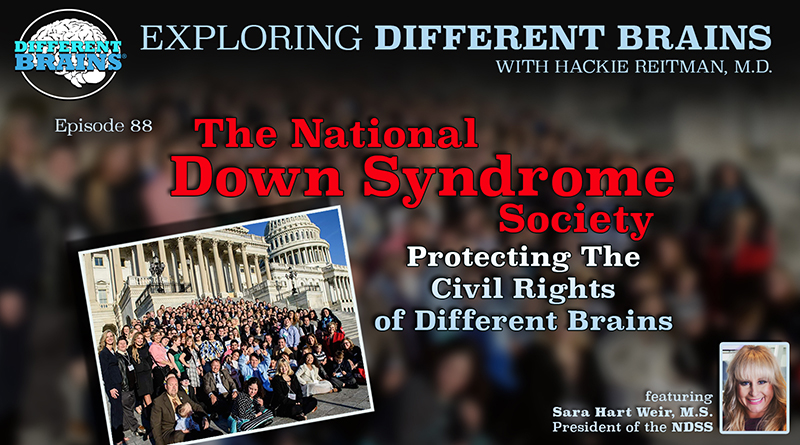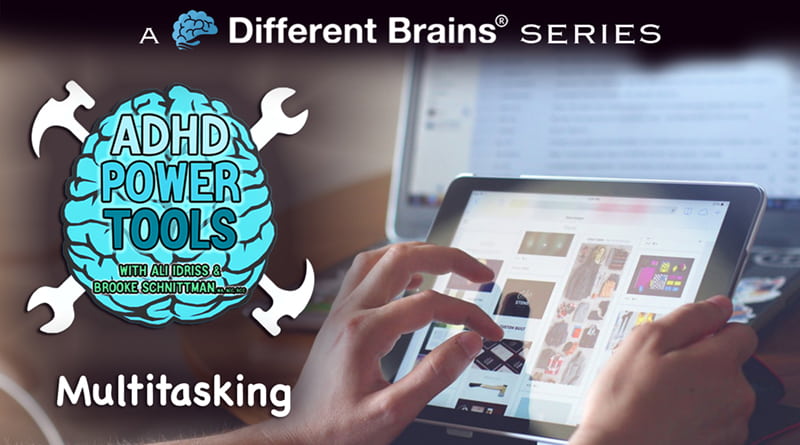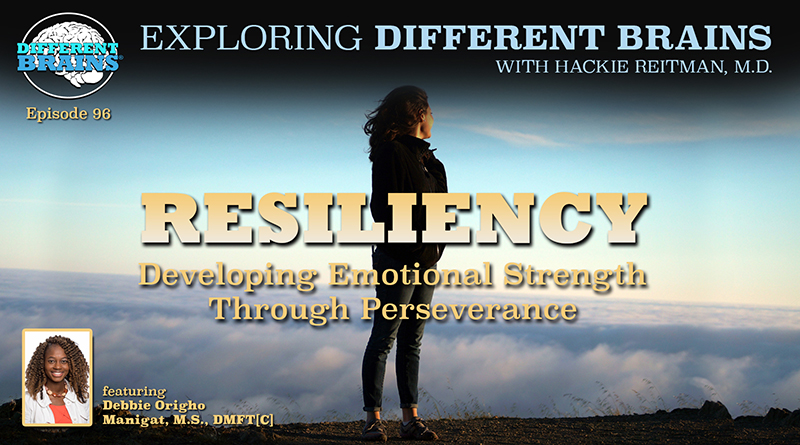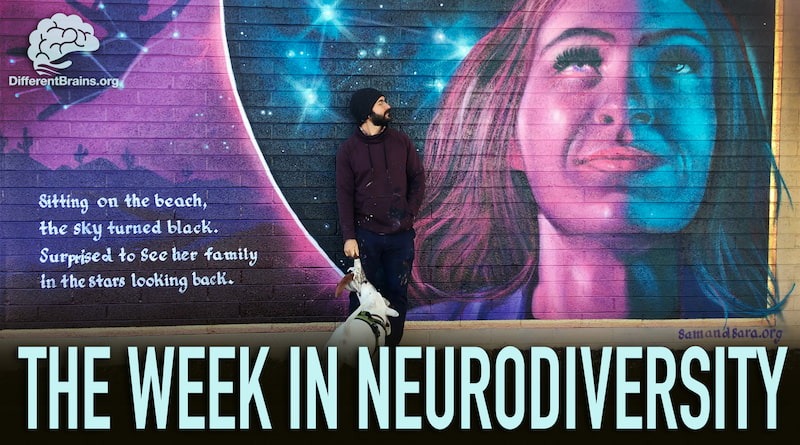
The National Down Syndrome Society: Protecting Civil Rights of Different Brains, with Sara Hart Weir, M.S. | EDB 88
(17 mins) In this episode, Dr. Hackie Reitman speaks with Sara Hart Weir, President of the National Down Syndrome Society (NDSS). The National Down Syndrome Society is the leading human rights organization for all individuals with Down syndrome. NDSS provides state-of-the-art, comprehensive programming to all individuals with Down syndrome and their families with four main areas of programming which include: the National Advocacy & Policy Center, the National Buddy Walk® Program, Community Outreach and Resources and Public Awareness. Sara discusses the NDSS, the growth of Down syndrome acceptance, the work her organization has done to get the ABLE Act passed, and common misunderstandings of the condition.
For more on the NDSS, visit www.ndss.org.
.
62 Second Preview:
.
To listen or download the podcast version of this episode, see the embedded player below.
Or look for us on your favorite podcast provider:
iTunes | Stitcher | SoundCloud
[expand title=”View Full Transcript”]
HACKIE REITMAN, M.D. (HR): Hi, I’m Dr. Hackie Reitman, welcome to another episode of Exploring Different Brains, and we are so lucky today to have the president of the NDSS, which is the National Down Syndrome Society, the very passionate and strong Sara Weir, who I had the pleasure of meeting when we were both presenting at the AADMD, the American Academy of Developmental Doctors and Dentists, in Houston, Texas, recently and Sarah Weir, you do great work. Thank you so much for being here with us at Different Brains.
SARA HART WEIR, M.S. (SW): Thank you so much for having me, it’s an honor to be here this afternoon.
HR: Sarah, you’ve done so much for so many through the NDSS and why don’t you introduce yourself to our audience because you can do it better than I can.
SW: I’d be honored, thank you so much again, I’m so excited to be here with you this afternoon. I’m Sarah Hart Weir, I’m the president of the National Down Syndrome Society. We’re actually headquartered in New York City. We were founded in 1979. We also have a large presence in Washington D.C., our nation’s capital and we are an organization with a very powerful mission statement, in fact, we just revitalized our mission statement earlier this year. We are the leading human rights organization for all individuals with down syndrome, you know from an organizational perspective, we felt that it was very important to put a stake in the ground that individuals with down syndrome have all of the potential in the world to achieve their own hopes dreams and aspirations but for the only thing that holds the back are archaic outdated laws and as an organization, we want to change those laws to empower individuals with down syndrome to live long healthy lives, speak out inclusive educational opportunities, seek out full and competitive employment and when I say employment, I’m not just talking about a job, I’m talking about a career and of course be a meaningful contributing part of society and be integrated into the community in a very competitive way so we’re very proud of our mission and we have an amazing team behind this organization that’s fighting for the rights of people with down syndrome each and every day.
HR: I love the way your whole body language changes when you start talking about human rights and all of these values that you have and all that you aspire to accomplish. Tell us how you got into this Sara.
SW: How I got into this wonderful community. So I’m from Kansas originally growing up, I’m actually the summer of my freshman year of college. I got a phone call from a really good family friend that I’ve known the majority of my life. I had been recommended to one of her family friends to work with her young daughter with Down syndrome. They were looking for a pyramid or somebody to spend the summer with Casey working on life skills, job skills, voice of the library, special Olympics and had the opportunity to meet Casey and her amazing mom and dad and brothers and sisters and immediately it clicked, I was became a part of her family, she’s still a part of my family and she was my inspiration for getting involved in this amazing community that the summer after that I got to see you know how an advocacy organization can really influence the lives of so many and I had the opportunity in college to go to Washington dc and one summer work for a lobbying firm and the other summer I got to spend working at the children’s defense fund and immediately that set my career path to graduate. I graduated from undergrad and then went on to be my master’s in public policy from Carnegie Mellon and then moved to Washington and I started working with NDSS almost immediately when I was working at a lobbying firm, we became we as an BSS became one of my first clients that I worked for and brought into the firm and then about six years ago, the organization called me and asked me to come in house. so I started off by with our VP of advocacy and affiliate relations for about four years and I’ve been the president for the last two-and-a-half years.
HR: Educate us with your passion about those of us who are ignorant about what the Able Act is. Tell us about the ABLE Act.
SW: It’ s one of my favorite things to talk about. So, the ABLE act stands for the achieving a better life experience back to able act and what the able act does is the first time that individuals with Down syndrome and other disabilities can actually save their own money. It’s a 529 account by 529 a or 529 Able account and what it does is it allows the individual with a disability and their family and basically any other source to contribute to that account about $14,000 a year for expenses related to the disability and those expenses are very broad. Housing, transportation, health, and wellness. Community integration, the ability to save for a job coach or pay your job coach, the ability to buy technology that helps you live your life or helps you do your job better. ABLE really address the barrier that exists in society for individuals with down syndrome and other disabilities because our folks can’t have more than $2,000 without being met benefits like Medicaid and social security in jeopardy and so what ABLE does or did when we passed it into law on December 19, 2014, when president Obama made it a law of the land. It allows our folks to save and remain on those benefits and since January of 2015, we were required to take our federal advocacy and moving to the states, we’ve passed 49 state ABLE laws, 49 out of 50, well 51 if you count a district in Columbia and as of yesterday, we have we now have 22 state ABLE programs, actually states that are offering ABLE accounts to our family.
HR: Now what was the bill? When you and I were in down at the AADMD in Houston recently, president George H. Bush, the senior, who I was lucky enough to get to meet in person with his wife, Barbara to talk about children’s problems many years ago. He couldn’t make he and Barbara couldn’t make it cause health reasons but tell us about the act that he signed when he was in.
SW: Yeah, so he’s credited with signing the Americans with disabilities act which was the first real landmark civil rights legislation or the larger disability community and you know the able act follows you know right on the heels of that. Unfortunately, almost you know 25 years later, did we pass the second most civil rights legislation in the form of the ABLE act. I’m hoping we don’t have to wait another 25 years for us to sign that next code into law, so let’s hopefully we can do it in this administration. Tell us about the next bill. I’m so glad you asked, you know if you look at the way our benefits our entitlement programs are structured for people with disabilities. It’s ad-sit access and its income. Well, ABLE really addresses the asset problem. You know, having more than two thousand dollars, I mean they can tell you the countless stories that I’ve heard as parents that we have on staff at the NDSS. Some of our incredible advocates from across the country that will tell you. That doctor on day one you know will tell you, don’t put any money in your child’s name and the low expectations that come from that. Well, ABLE now sets the expectation. You know, college is the possibility, employment is a possibility, but what we have an address is income, you know there are still very low income limitations on that other side of the coin. You know roughly about $1,400 a month in what an individual with a disability can earn without jeopardizing benefits like Medicaid and social security, we know how important those programs are and right now, unfortunately, we’re having that debate in Washington about Medicaid and what’s going on with the affordable care act repeal and replace and I think we could spend you know three other interview sessions talking just on that topic but the next bill to get to your question. it’s employment, you know, we have to break down those archaic outdated laws rooted in entitlement programs when it comes to allowing an individual with a disability to actually earn a fair wage. You know earning below the poverty line, it’s a vicious cycle of poverty and so the conversations that NDSS with what we’re having in Washington right now is how do we decouple the poor from the disabled in these programs and allow the benefit of health care and job supports and community living to remain intact, but how do we empower our folks because I think that’s the biggest misconception when you actually sit down to talk to a person with down syndrome. You know they’re not looking for a handout, they’re looking for a hand up and they’re looking not only for a job, they’re looking for a career and that’s what we need to get them.
HR: What is the biggest misunderstanding that Public has about people with Down syndrome?
SW: That’s a good question. My first response right just right off the bat would be that people with Down syndrome want to be a burden on system or on society. You know, I’ve had a lot of people with Down syndrome over the last 20 years and a lot over the last six years in my positions at NDSS that is just not the case. They really want to be taxpayers, they want to earn a fair wage, they want to get benefits from their employer and they want to live the American dream and you know I think as an organization and as a society, along with members of congress and other elected officials, we need to empower them to do that.
HR: What is the #DSWorks campaign?
SW: Oh, I’m so glad you asked, so #DSWorks our #DSWorks because it’s 2017 and you need a hash tag for everything these days, it really is our first ever employment initiative focused on showing the world that people with down syndrome are read, willing, and able to work and with #DSWorks, we launched it last spring so we’re just over a year into this campaign and what we do, we have three components at #DSWorks. The first is providing resources to everybody involved in the employment process. Parents, most importantly the self-advocate, educators, employers, job coaches, everyone that supports that individual with achieving a lifelong career we’re providing webinars, brochures, resources on our website, we’re pulling in experts across the sequel to process to provide the information to our families. We’re reaching out to organizations like Linked in, we want to see people with down syndrome on you know utilizing technology to find employment opportunities. I’ve never seen somebody with down syndrome on linked in and so many of us utilize that platform to network and look for job opportunities and resources to put us in a more successful position in the employment area we work for. The second component is what I talked about when you asked me what’s the next ABLE or what’s the next ABLE act. Its legislation, we need to break down these barriers to allow folks to earn a fair wage, we need to put an end to policies and laws that allow for some minimum wage. I just think it’s discriminatory that individuals with Down syndrome and other disabilities can make sense on the hour to do the same job that you or I would do without having a disability.
And the final piece, which has been really exciting to experience the last year with our amazing staff at the national Down syndrome society and that is working with employers. So we’ve developed a number of partnerships with employers to create meaningful job opportunities for individuals with Down syndrome, we’ve worked with the NHL and the new Jersey Devils, we had two interns who participate in a 10-week fellowship with the devils, Freddie and Alexa. Freddie’s work with the kids zone and oversaw that process on the game day operations and Alexa was a ticket taker and they got paid above minimum wage, we gave them transportation stipends to get to and from their job coaches on site and at the end of the season without us even pushing the devils hired Freddie and Alexa on as full-time employees. We’re working with companies like Moya financial, who are not just looking at hiring practices but they’re looking at their benefits and their health care insurance and are they offering the very best opportunities and insurance policies for families that have loved ones with disabilities and then we’re working with small businesses like company out of finger Texas, lakes no shack, which leg is the youngest business owner in his small town of Sanford, Texas, got his business license from the city council and the mayor but he’s the only business owner with down syndrome in the state of Texas. So we’ve been working with lake and his family to provide scholarship opportunities for other individuals with down syndrome that want to start their own businesses so that’s #DSWorks, we are breaking down barriers to employment and we’re showing everybody from main street to wall street that people with down syndrome are ready, worried, and able to work.
HR: Well, you keep up the great work. Tell our audience here at Different Brains how they can get in touch with you and learn more.
SW: Absolutely, the best thing you can do is go onto our website, it’s www.NDSS.org, if you pop over there, you will see a wealth of information. We’re very easy to get into contact to. You’ll find that on NDSS and the staff that we have are the best staff in the nonprofit industry and we’re very proud to serve our constituents and all of the families that we represent.
HR: And we here at different brains are glad to highlight all of your work and we look forward to helping you in forming a greater partnership. It’s been such a pleasure to talk to you. Sarah, we’re the president of the NDSS, the National Down Syndrome Society. Thank you so much for being a guest here at different brains.
SW: Thank you so much for having me.
[/expand]
This video is owned by Different Brains Inc, kindly donated by it’s original producer PCE Media LLC.
Different Brains® Inc. founder Harold “Hackie” Reitman, M.D. is an author, filmmaker, retired orthopedic surgeon, former professional heavyweight boxer, the past chairman and president (and current board member) of The Boys and Girls Clubs of Broward County, and a neurodiversity advocate. However, it was his role as a father that led to the creation of the DifferentBrains.org website.
Hackie’s daughter Rebecca grew up with epilepsy, 23 vascular brains tumors, and underwent 2 brain surgeries before the age of 5. Her struggles and recovery put him on the road to, through 26 professional heavyweight boxing matches, raising money for children’s charities (to which he donated every fight purse).
Rebecca eventually went on to graduate from Georgia Tech with a degree in Discrete Mathematics, and Dr. Reitman wrote and produced a film based on her experiences there (The Square Root of 2, starring Darby Stanchfield of ABC’s Scandal). After graduation, Rebecca received a diagnosis of Asperger’s syndrome. Hackie, shocked at his own ignorance of the topic despite being an M.D., embarked on years of research that culminated with his book Aspertools: The Practical Guide for Understanding and Embracing Asperger’s, Autism Spectrum Disorders, and Neurodiversity (released by HCI books, publishers of the Chicken Soup for the Soul series).
This experience revealed to Hackie the interconnectedness of the conditions that fall under the neurodiversity umbrella, while alerting him to the in-fighting and fractured relations that often plague the organizations tasked with serving the community. Convinced that overcoming these schisms could help all of society, Hackie forged the Different Brains philosophy of inclusive advocacy: “Supporting Neurodiversity – From Autism to Alzheimer’s and All Brains In Between”.
In the company’s initial years of operation, Hackie self-financed all of the content on DifferentBrains.org, all of which offered free to view to the public. Currently he is the host of our weekly interview show Exploring Different Brains, writes blogs for the site, and tours the country speaking at conferences, conventions and private functions, all with the goal of improving the lives of neurodiverse individuals and their families, and maximizing the potential of those with different brains. Separate from Different Brains, Hackie is the founder and CEO of PCE Media, a media production company focusing on reality based content. He recently co-executive produced the documentary “Foreman”, the definitive feature documentary on legendary boxer and pitchman George Foreman.




